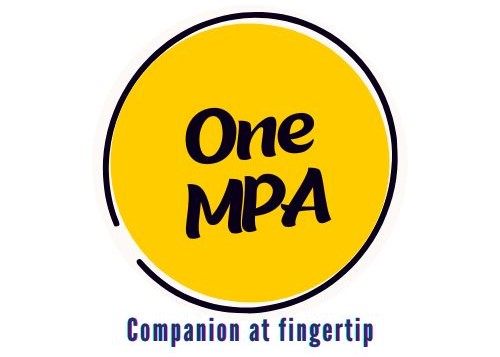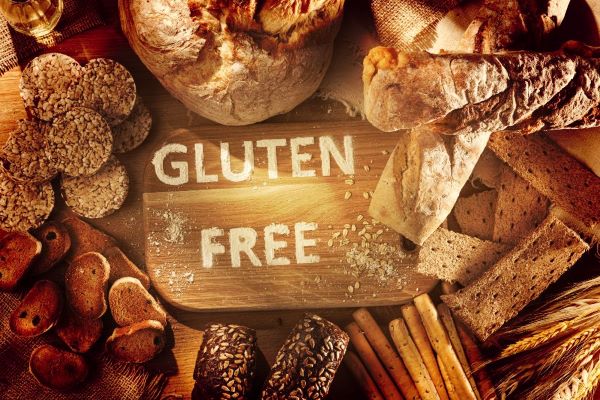What is Gluten all about?
Grains like wheat, barley, and rye contain a protein known as gluten. It provides elasticity to dough, helping it to rise and maintain its shape. However, for individuals with certain conditions, gluten can be harmful and cause various health issues.

This article explores the concept of living a Gluten-Free lifestyle and its significance in today’s society.
Overview of the Gluten Free diet
The Gluten-Free diet involves eliminating gluten-containing foods from one’s meals and snacks. It is primarily followed by individuals with celiac disease, an autoimmune disorder triggered by gluten consumption. Additionally, people with non-celiac gluten sensitivity may choose to adopt a Gluten-Free diet to alleviate symptoms like bloating, abdominal pain, and fatigue.
Rise in popularity and importance of Gluten Free lifestyle
Over the years, the awareness and demand for Gluten-Free products have skyrocketed. This increase can be attributed to a rise in diagnosed cases of celiac disease, as well as a growing interest in health-conscious eating habits. Understanding the benefits and challenges of a Gluten-Free lifestyle is crucial in navigating this dietary choice effectively.
Understanding Gluten
Definition and composition of gluten
Gluten is a complex mixture of proteins, primarily gliadin and glutenin, which gives elasticity to dough. It is responsible for the chewy texture of bread and other baked goods. However, in susceptible individuals, these proteins can trigger an immune response and damage the lining of the small intestine.
How gluten affects individuals with celiac disease
Celiac disease is an autoimmune disorder characterized by an abnormal immune response to gluten. When individuals with celiac disease consume gluten, their immune system attacks the small intestine, damaging the villi and leading to malabsorption of nutrients. This can result in a wide range of symptoms, including gastrointestinal issues, fatigue, anemia, and even neurological problems.
Non-celiac gluten sensitivity and its symptoms
Non-celiac gluten sensitivity refers to a condition in which individuals experience adverse symptoms when consuming gluten, despite not having celiac disease. The precise mechanisms underlying this sensitivity are still not completely comprehended, but common symptoms may encompass bloating, abdominal pain, diarrhea, fatigue, and headaches. Adopting a Gluten-Free diet often brings relief to individuals with non-celiac gluten sensitivity.
Health Benefits of a Gluten Free Diet
Improvements in digestive health
For individuals with celiac disease or gluten sensitivity, eliminating gluten from the diet can lead to significant improvements in digestive health. It helps in reducing inflammation and allows the small intestine to heal, leading to better absorption of nutrients and relief from symptoms such as diarrhea, bloating, and abdominal pain.
Alleviation of celiac disease symptoms
Celiac disease symptoms can vary widely among individuals, and a Gluten-Free diet is the only effective treatment. By strictly avoiding gluten, those with celiac disease can experience a reduction or elimination of symptoms like chronic diarrhea, weight loss, skin rashes, and joint pain.
Potential relief from certain autoimmune conditions
There is emerging research suggesting a potential link between gluten consumption and the development or exacerbation of certain autoimmune conditions, such as rheumatoid arthritis, multiple sclerosis, and thyroid disorders. While the evidence is still limited, some individuals with these conditions report experiencing symptom improvement on a Gluten-Free diet.
Weight management and potential weight loss
Adopting a Gluten-Free diet does not guarantee weight loss, but it can contribute to weight management in certain cases. Many gluten-containing foods are high in refined carbohydrates and low in fiber, which can lead to overeating and weight gain. By focusing on naturally Gluten-Free whole foods, individuals may find it easier to maintain a healthy weight.
Gluten Free Foods and Ingredients
List of naturally Gluten Free foods
Fortunately, there are numerous naturally Gluten-Free foods that can be enjoyed as part of a balanced diet. These include fruits, vegetables, lean meats, poultry, fish, legumes, dairy products, and Gluten-Free grains like rice, quinoa, and corn. Incorporating these foods ensures a well-rounded and nutrient-rich Gluten-Free diet.
Gluten-containing foods to avoid
Individuals following a Gluten Free diet need to be aware of the foods that commonly contain gluten. Wheat, barley, rye, and their derivatives must be avoided. This includes products such as bread, pasta, cereals, beer, and certain sauces. Vigilantly examining food labels and remaining aware of potential cross-contamination hazards is crucial.
Gluten Free alternatives and substitutes
As the demand for Gluten-Free products has grown, so has the availability of Gluten-Free alternatives. For example, there are now Gluten-Free bread, pasta, and baking mixes made from alternative flours like rice, almond, and chickpea flour. These substitutes allow individuals to enjoy their favorite foods without compromising their Gluten-Free lifestyle.
Reading food labels and identifying hidden gluten
When shopping for Gluten-Free products, it is crucial to carefully read food labels to identify any hidden sources of gluten. Ingredients like modified food starch, malt flavoring, and hydrolyzed vegetable protein can contain gluten. Familiarizing oneself with common gluten-containing ingredients helps in making informed choices while grocery shopping.
Challenges and Considerations
Difficulty in maintaining a Gluten Free diet
Following a Gluten-Free diet can be challenging, as gluten can be found in unexpected sources and cross-contamination is a concern. It requires careful meal planning, label reading, and thorough communication with food establishments to ensure a Gluten-Free meal. Moreover, social situations and traveling may present additional obstacles that require proactive preparation.
Cross-contamination risks and dining out
Cross-contamination takes place when gluten-free foods come into contact with surfaces or foods that contain gluten. This can happen during food preparation, cooking, or storage. Dining out poses particular risks, as restaurants may not have dedicated Gluten-Free kitchen areas or may lack awareness about cross-contamination. Communication with restaurant staff is vital to minimize these risks.
Nutritional deficiencies and Gluten Free products
While the Gluten-Free diet can be nutritionally adequate when well-balanced, there is a risk of certain nutrient deficiencies due to the elimination of gluten-containing grains. Whole grains like wheat provide important nutrients such as fiber, B vitamins, and iron. Therefore, individuals on a Gluten-Free diet should ensure they obtain these nutrients from other sources or consider appropriate supplementation.
Social implications and finding support
Living a Gluten-Free lifestyle can have social implications, as it may require explaining dietary restrictions to friends, family, and colleagues. It can also impact social gatherings and dining out experiences. Finding support from celiac disease or gluten sensitivity support groups, online communities, and healthcare professionals can help individuals navigate these challenges.
Gluten Free Living Tips
Planning meals and snacks
Planning meals and snacks in advance can help individuals maintain a balanced and satisfying Gluten-Free diet. It ensures access to safe and nutritious options while reducing the likelihood of resorting to gluten-containing convenience foods. Incorporating a variety of Gluten-Free grains, proteins, fruits, vegetables, and healthy fats is key.
Safe food preparation and storage practices
To prevent cross-contamination, individuals must implement safe food preparation and storage practices. This involves using separate utensils, cookware, and cutting boards for Gluten-Free foods, and thoroughly cleaning surfaces to avoid traces of gluten. Storing Gluten Free items separately from gluten-containing products is essential as well.
Helpful resources for Gluten Free living
There are numerous resources available to support individuals following a Gluten Free lifestyle. Websites, books, and mobile applications offer Gluten Free recipes, product reviews, and dining out guides. Additionally, connecting with healthcare professionals, dietitians, and support groups can provide valuable guidance and emotional support.
Coping with challenges and staying motivated
Staying motivated on a Gluten Free diet requires a positive mindset and strategies to overcome challenges. Engaging in self-care activities, practicing mindfulness, and focusing on the health improvements and symptom relief experienced can help individuals maintain their commitment to a Gluten Free lifestyle.
Debunking Gluten Free Myths
Misconceptions about Gluten Free diets
There are several misconceptions surrounding Gluten Free diets, including claims that it is a weight-loss strategy for everyone or that Gluten Free foods are automatically healthier. But this is not 100% true. It is suggested that individuals should make informed decisions about their dietary choices.
Unveiling Distinctions: Celiac Disease Versus Gluten Sensitivity
Distinguishing between celiac disease and gluten sensitivity is crucial, as they are distinct conditions with different underlying mechanisms. Celiac disease involves an autoimmune response, while gluten sensitivity is a non-autoimmune reaction. Understanding these differences fosters better comprehension of the need for a Gluten Free diet in each case.
Evaluating the health claims associated with Gluten Free products
Gluten Free products often carry health claims on their packaging, suggesting benefits beyond catering to individuals with gluten-related disorders. It is important to critically evaluate these claims and consider the overall nutritional quality of Gluten Free products, as some may be heavily processed or contain high amounts of added sugars and fats.
Gluten Free and the Food Industry
Growth of the Gluten Free market
The demand for Gluten Free products has led to significant growth in the Gluten Free market. Food manufacturers have responded by developing a wide range of Gluten Free options, from basic staples to indulgent treats. The availability and accessibility of these products have increased, making it easier for individuals to follow a Gluten Free diet.
Challenges and controversies surrounding Gluten Free labeling
The labeling of Gluten Free products is subject to regulations and guidelines to ensure accuracy and safety for consumers. However, challenges and controversies can arise due to varying standards across different regions and potential mislabeling or cross-contamination. Continuous efforts are being made by authorities to improve labeling practices and increase consumer confidence.
Food industry’s response to the Gluten Free trend
The food industry has adapted to the Gluten Free trend by reformulating existing products and introducing new Gluten Free alternatives. This response aims to cater to the needs of individuals with celiac disease, gluten sensitivity, or those simply choosing a Gluten Free lifestyle. It is important for consumers to stay informed about product ingredients and manufacturing practices.
Gluten Free Lifestyle in a nutshell
Living a Gluten Free lifestyle involves avoiding gluten-containing grains and products. It is primarily followed by individuals with celiac disease or gluten sensitivity to manage symptoms and improve overall health.
For those considering a Gluten Free diet, seeking proper medical diagnosis and guidance is essential. With the right information, resources, and support, individuals can successfully navigate the challenges and enjoy the benefits of a Gluten Free lifestyle. The Gluten Free movement is likely to continue growing as awareness increases and food industry practices evolve. Ongoing research and advancements in Gluten Free alternatives will further enhance the options available to individuals, making Gluten Free living more convenient and inclusive.


1 thought on “Gluten Free Living: Embrace Health and Discover Freedom”